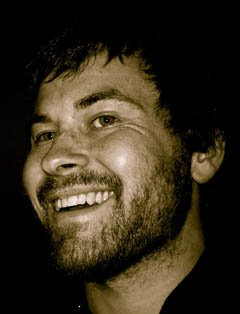The music started at 3.30 this morning. Having only got three hours sleep, I turned over in bed, grumbling at the noise outside.
I could hear jets flying overhead in the distance, which set me on edge. Then, at 4.38am, a dull thump stung the night air. Israel had surely hit the southern suburbs of Beirut again, in a bid to hit Hizbullah positions. Never mind that the suburbs are also densely populated civilian areas.
At 4.50am a second, much louder, explosion rang out. I couldn’t sleep. I lay there for an hour or so, wondering if I should turn on CNN to hear the grisly latest. I decided not to, and thankfully fell asleep to the whirring of the air-con.
Waking again at about 8am, I turned on the TV with trepidation. The latest? More strikes on southern Beirut’s suburbs, more strikes on Beirut International Airport, and - most crucially – the destruction of the Beirut-Damascus highway. The ports of Saida, Tyre and Tripoli have also been hit.
Having only access to CNN, I was nonetheless surprised that the bombing of the highway was not analysed in real detail. It’s the main route out of Lebanon for those seeking refuge from the bombing, or foreign nationals hoping to transfer out of Lebanon following the destruction of the airport.
In short, Israel is locking the Lebanese in. If this doesn’t constitute an act of terrorism, I don’t know what terrorism is. The Israelis see this as a strategic necessity, when in effect it condemns Lebanese civilians to devastating air attacks.
Over and above all this, Israel is hitting power stations and fuel reserves. Israel is deliberately aiming to set Lebanon’s infrastructure back to civil war levels.
Unsurprisingly, my morning interview with Ziad Abs of the Free Patriotic Movement fell through. So it was off to the British Embassy. On hailing a beeping service cab outside my hotel, the Palestinian driver immediately offered his hand.
“You from Germany?” he asked. “Wales,” I said. “Ah, beautiful country. I’m Nabil. You?”
“Andy,” I replied. The cab wound its wound along the Corniche and onto the flyovers of the Beirut Central District, talking about the latest events. “You shouldn’t leave. It’s fine here. We are used to it.”
I asked him about the Beirut-Damascus highway. Surely Lebanon was locked up now? “Ach, there are plenty of ways into Syria. You can go north of Tripoli and cross over there. From north Syria, you can get down to Syria International Airport in around an hour.”
Nabil abruptly stopped the car just after the Corniche. “You want some coffee?” he asked. Before I had a chance to respond, he wound down his window and yelled at a boy standing in the doorway of a café at the side of the road. An espresso was passed to me.
“Lebanon – there is everything here. Every colour of person, every religion. Every temperature and season. Dust next to grass. Some women look like they come from Paris. Some look like they are in Mecca. Politics of all kinds. But we are all Lebanese.” He honked his ageing Mercedes’ horn at a woman on the side of the road. “She is beautiful. I beep.” The beep-ee didn’t look too impressed.
He looked over his shoulder as I mixed my coffee. “Right, we go on to the Embassy now.”
Nabil was born in Lebanon, but had Palestinian parents who had settled in Lebanon after the Israelis took Palestine in 1948. “You know that?” he asked. “Yes – nakba,” I replied. ‘Nakba’ is the Palestinian term for the events of 1948 – ‘the disaster’. “Yes! That’s it!” he yelled, shaking my hand again.
I eventually got dropped outside the Embassy, where Nabil took a vastly inflated fare. Let’s just say it cost me one-twentieth of his fare to get back to Hamra after registering at the Embassy! But he was a good storyteller, and a bit of a character.
Stopping off for a falafel, I came back to the hotel. Hamra is very quiet, with most of the shops closed. CNN is still showing footage of last night’s attacks, some of which is sourced from al-Manar, Hizbullah’s TV channel.
Suffice it to say that I’m not going into a full political analysis here. But one particular story on CNN made me laugh out loud. A Beirut-based CNN correspondent said at 1pm: “I understand that a deal was struck a short time ago, which allowed five Middle East Airlines passenger flights to leave Beirut International Airport after the runways were repaired.”
Then the killer line. “The Israelis then bombed the runway again after those MEA planes took off.”
You have to laugh, or you’d go mad.
Subscribe to:
Post Comments (Atom)

No comments:
Post a Comment